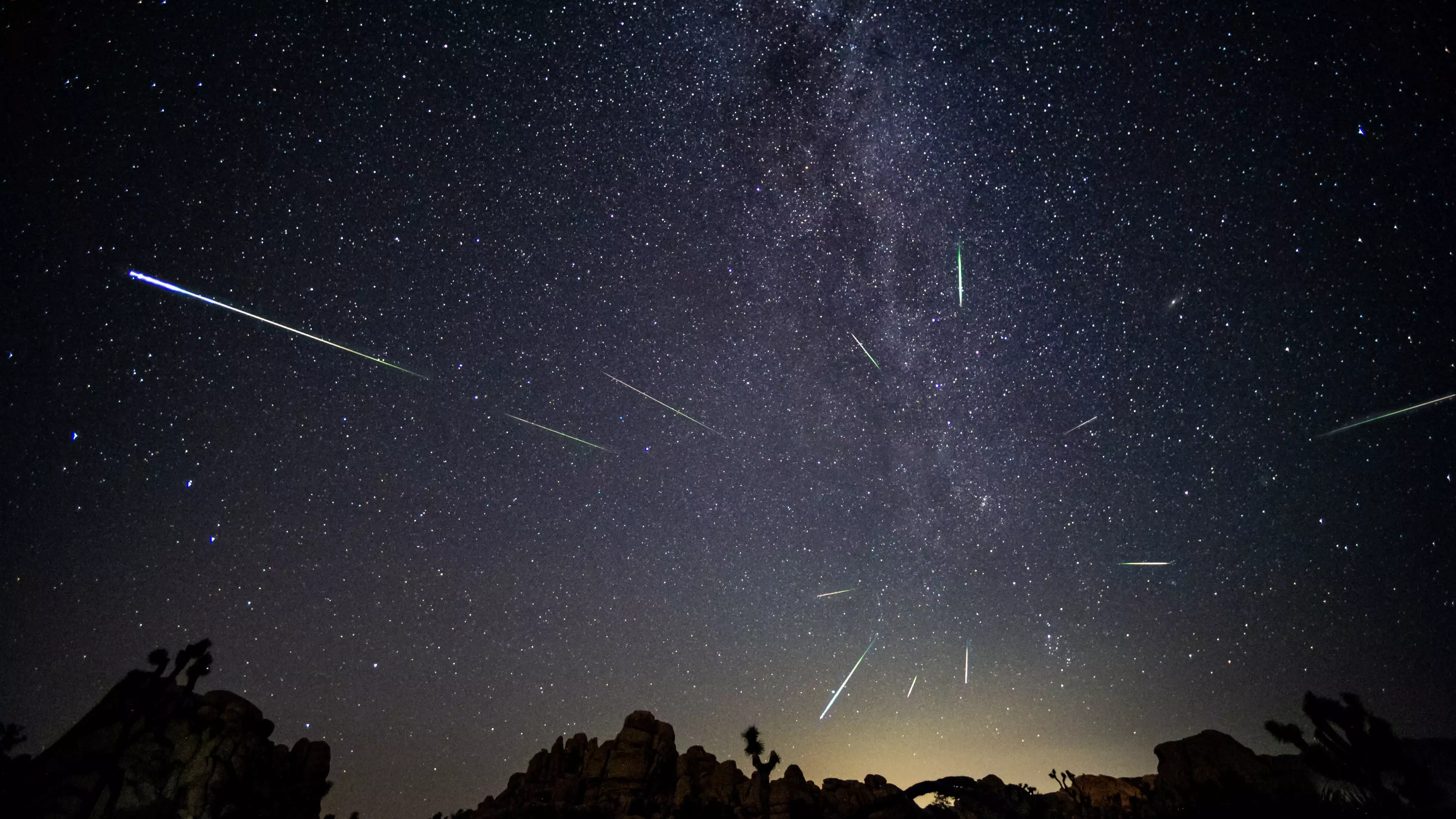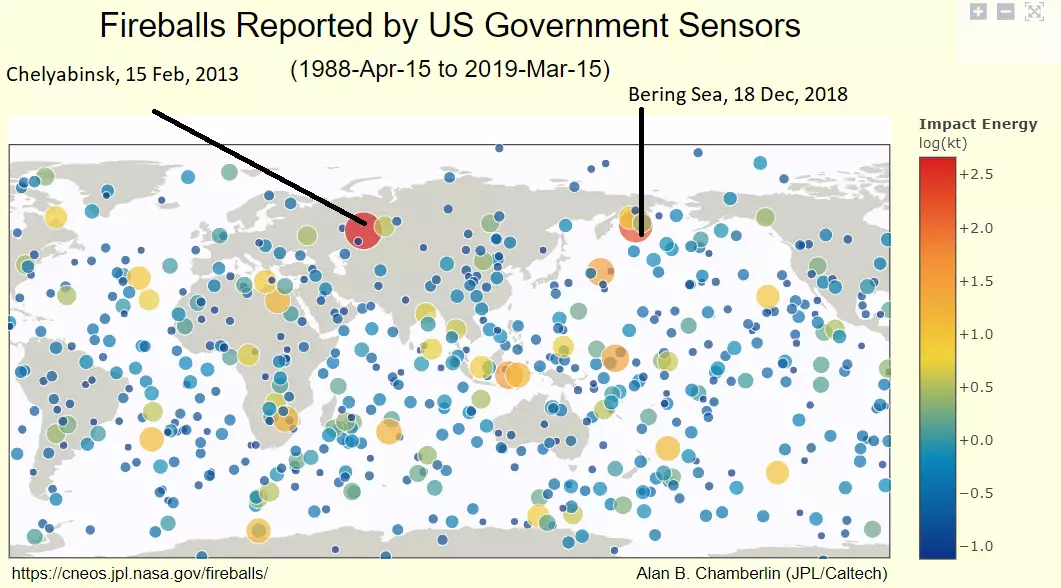
A meteor ten times stronger than the Hiroshima bomb exploded above Earth last year.
According to reports, the blast occurred at 11.50pm GMT (3.30am EST) on 18 December, 16 miles (25.6 kilometres) above the planet's surface over the Bering Sea, off Russia's Kamchatka Peninsula.
It's understood to be the second biggest explosion of its kind in the last 30 years - the largest being over Chelyabinsk in 2013.
Advert
The rock measured 30 feet (ten metres) wide, weighed more than 1,500 tons and produced the same amount of energy as 173 kilotons of TNT.
Military satellites picked up the meteor at the time and sent the information to NASA, but the explosion had gone relatively unnoticed by most.
However, Peter Brown, a planetary astronomer at the University of Western Ontario, Canada, was one of the few who did, and he shared the news with his followers on Twitter:
Kelly Fast, the near-Earth objects observations programme manager at NASA, spoke about the incredible discovery at the 50th Lunar and Planetary Science Conference in The Woodlands, near Houston, in Texas.
Advert
She said: "That was 40 percent the energy release of Chelyabinsk, but it was over the Bering Sea so it didn't have the same type of effect or show up in the news.
"That's another thing we have in our defence - there's plenty of water on the planet."

Speaking to the BBC, Lindley Johnson, planetary defence officer at Nasa, said a fireball this large is only expected to strike the Earth two or three times every 100 years.
Advert
In 2005, the US Congress tasked NASA with finding 90 percent of near-Earth asteroids of 140m (460ft) in size or larger by 2020, and registers them on its Fireball and Bolide Database.
Meteors such as this are known as 'problems without passports' because they have the potential to impact whole regions if they collide with Earth.
However, according to scientists' estimates, it will take them another 30 years to meet their 90 percent objective.
Advert
Chelyabinsk was the largest explosion of its kind recorded in recent years.
Measuring 656ft wide, the asteroid was named 2011 EO40 and six years ago flew into Earth's atmosphere at 41,600mph, releasing 30 times more energy than detected at Hiroshima.
Featured Image Credit: PATopics: Science, World News, Interesting, Technology